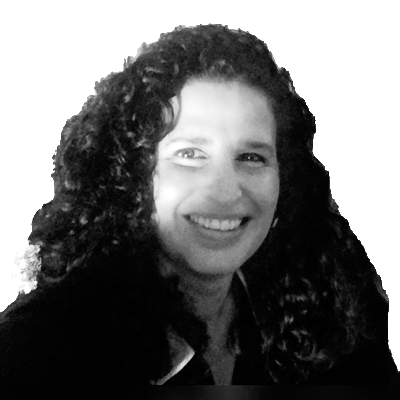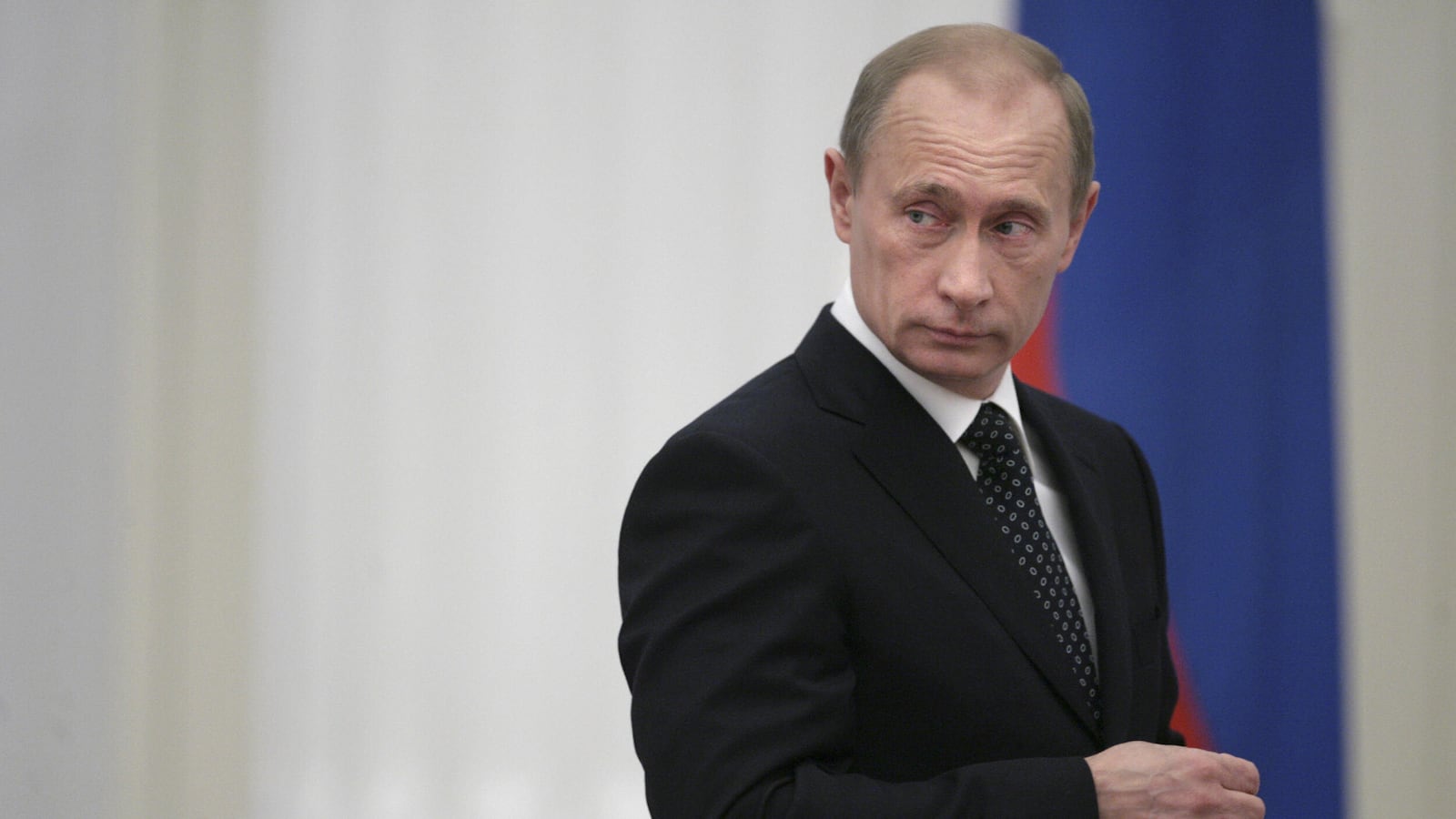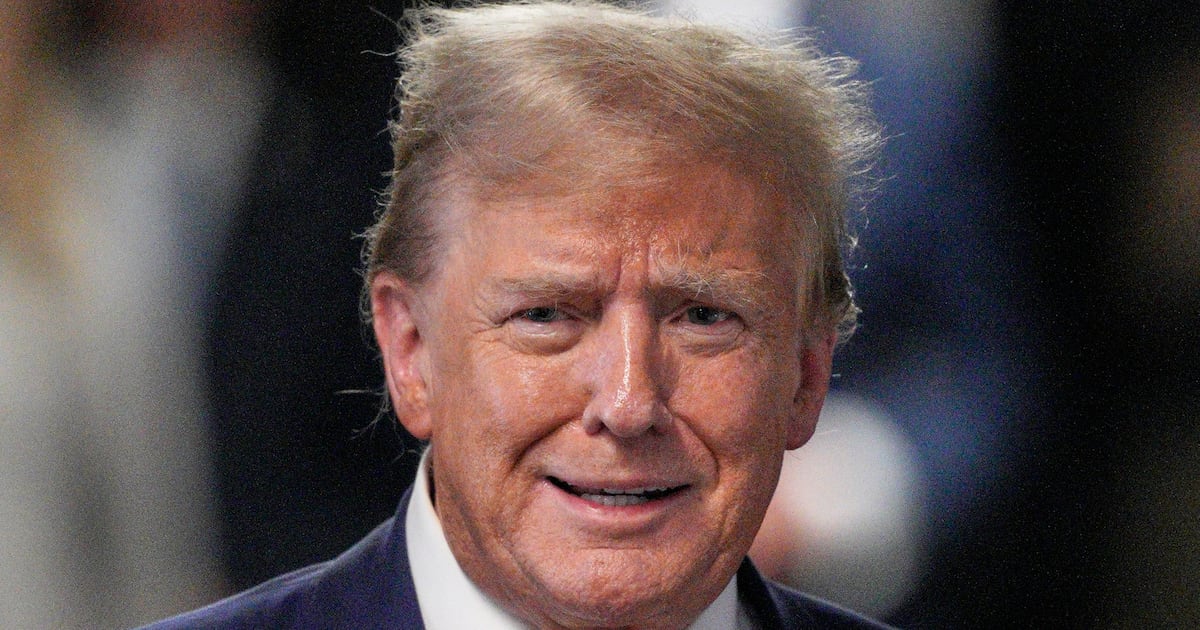JERUSALEM—Former Polish President Aleksander Kwaśniewski has sat across a table from Vladimir Putin on dozens of occasions. Having traded jabs with the Russian president through countless conflicts during his 10-year-long-tenure—most notably when he helped Ukraine get rid of a pro-Russia president who came to power after an allegedly fraudulent election—Kwaśniewski has never been known to back down from a face-off with Putin.
Now, with the Russian president on the verge of launching a full-scale invasion of Ukraine that could spark a devastating war, Kwaśniewski has some thoughts on how to manage the latest round of aggression from Moscow. And it involves doing exactly the opposite of what Putin has demanded of the U.S. and NATO.
NATO should immediately accept Ukraine as a full member, Kwaśniewski, who was the president of Poland from 1995-2005, told The Daily Beast while on a visit to Jerusalem.
“If Putin can decide in one night that Donetsk and Luhansk are no longer part of Ukraine, why can we not decide that Ukraine is a member of NATO?,” he said after meeting with Israeli leaders at the Conference of Presidents of Major American Jewish Organizations, which he attended following the Munich Security Conference. “For me the real test will be the question of NATO. Ukraine—even a partial, divided Ukraine—must become a member of NATO now, not next week,” he added, alluding to Donetsk and Luhansk, the two Ukrainian provinces that have been de facto annexed by Russia.
For months, Vladimir Putin has been aggressively pushing for guarantees from NATO that Ukraine be barred from the alliance, using Western leaders’ refusal to cede to that demand as justification for Moscow’s continued military escalations. Ukrainian president Volodymyr Zelensky, meanwhile, has remained firm in his stance that his country should have the right to join the alliance as a member state, with all the security perks that come with it.
On Tuesday, the international military alliance did not address the possibility of upgrading Ukraine’s status, but in a press conference NATO chief Jens Stoltenberg acknowledged that “every indication is that Russia continues to plan for a full-scale attack on Ukraine… More and more of the forces are moving out of the camps and are in combat formations and ready to strike.”
As the world eyes Ukraine’s borders for signs of a full-scale invasion that Kwaśniewski believes is Putin’s “next likely step,” other skilled observers of Putin warn that he has already launched something just as dire: an endless multi-level onslaught that hovers just beneath the Biden administration’s benchmark for direct military intervention.
With Ukraine nearly encircled by Russian forces, two provinces declared “independent” and regular cyber attacks, “they want to make our lives impossible so we agree that anything is better than this—even their takeover,” said Ruslan Kavatsiuk, a former adviser to Ukrainian army chief of staff Viktor Muzhenko, who as an officer fought against the Russian forces in the region of Donbass, in 2014.
“They want to crack our minds,” Kavatsiuk told The Daily Beast. “Their main problem is that they are afraid about entering without the population’s agreement. They want us to say 'we can’t survive like this, give us anything else, even you.'’”
"Nonetheless, Kavatsiuk, who has been told he's on a Russian kill list should the Ukrainian government be overthrown by Russian forces, added that no “other military has killed more Russian soldiers than the Ukrainian armed forces.” When Russia invaded Crimea, he said, Russian forces were stopped even by an overpowered Ukrainian military. “They didn’t stop at Donetsk because they felt like it.”
Ukraine has long held the imaginations of ambitious Russian leaders and of dissenters dreaming of freedom from the Russian yoke. Natan Sharansky, a native of Donetsk and its most famous dissident, who spent nine years in Soviet prisons in the 1980s, recalled in an interview with The Daily Beast conversations about Ukraine with fellow convicts. “In our scenarios, once the Soviet Union fell Ukraine would become independent, and would quickly become a country like France… Ukraine has great potential as a democracy and for Putin, the main concern is that Ukraine is the principal stumbling block preventing him from restoring the Soviet empire.”
“The more their direction is towards the west and NATO, the more Putin thinks ‘we want our lands back,’” he added.
Putin, he believes, had good reason for hope following the fiasco of President Obama’s 2013 abandonment of his red line against the use of chemical weapons in Syria, which opened the door to Russia’s reemergence as a diplomatic actor in the Middle East.
“Obama demonstrated incredible weakness when he did what he did with Syrian chemical weapons, Assad survived and the Russians built their bases,” Sharansky, who became an Israeli politician after his release, said. “It was a mistake that Israel took this so quietly.” Remarking on his country’s predicament, Israeli foreign minister Yair Lapid said on Monday that “Russia is our neighbor to the north.”
A year later, Putin annexed the Crimean peninsula, part of Ukraine, to Russia through a silent invasion of un-uniformed soldiers. The West imposed sanctions on Russia. “It was clear the West was not going to do anything to stop him, Sharansky said. “He wanted Crimea for a long time, and it was a difficult decision for him, but the weakness of an American president who did not hold to his own word made it much easier.”
Putin, Kavatsiuk says, miscalculated the support he enjoys in Ukraine by assuming that Russian speakers—a group including every Ukrainian over the age of 30, who lived under Soviet domination—would support his endeavor to annex part or all of Ukraine to a greater Russia.
Kavatsiuk, who is deputy CEO of Kyiv’s Babyn Yar Holocaust Memorial Center, said that some natively Russian-speaking Ukrainians switch to Ukrainian when traveling abroad so as not to be perceived as Russians.
“The language is not an issue,” he said. “The question is are you pro-European Union or pro-Russia? Do you want to be part of the free world or part of a country that is one big Guantanamo prison? We choose freedom and democracy day after day, again and again, we choose democracy because it is part of our DNA,” he said.
A recent poll conducted by the Ilko Kucheriv Democratic Initiatives Foundation, an independent think tank, showed that 78 percent of Ukrainians consider Ukrainian their mother tongue, versus 18 percent whose native language is Russian.
While foreign embassies have fled the capital city of Kyiv, a move Kavatsiuk calls “cowardly,” Ukrainian citizens remain subject to an extraordinary psychological and economic assault. Many with family in the western part of the country are trying to find refuge among relatives.
“Psychologically, how long can people live under such pressure?” Kwaśniewski asked, recalling his visit, less than a week ago, to Dnipro, Ukraine’s fourth largest city in the nation’s endangered east, which is only 160 miles from the city of Donetsk. “I saw very, very serious citizens. They don’t smile. They are prepared to fight. Putin may have underestimated their will.”









